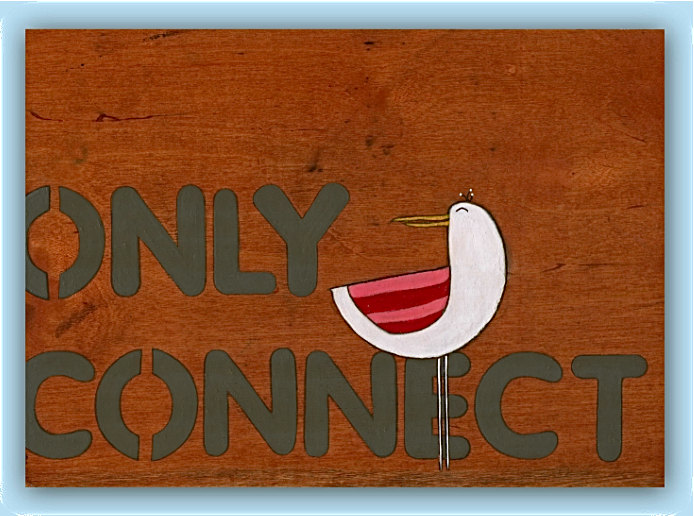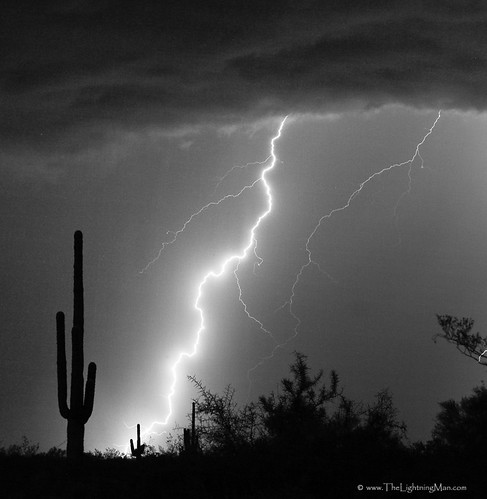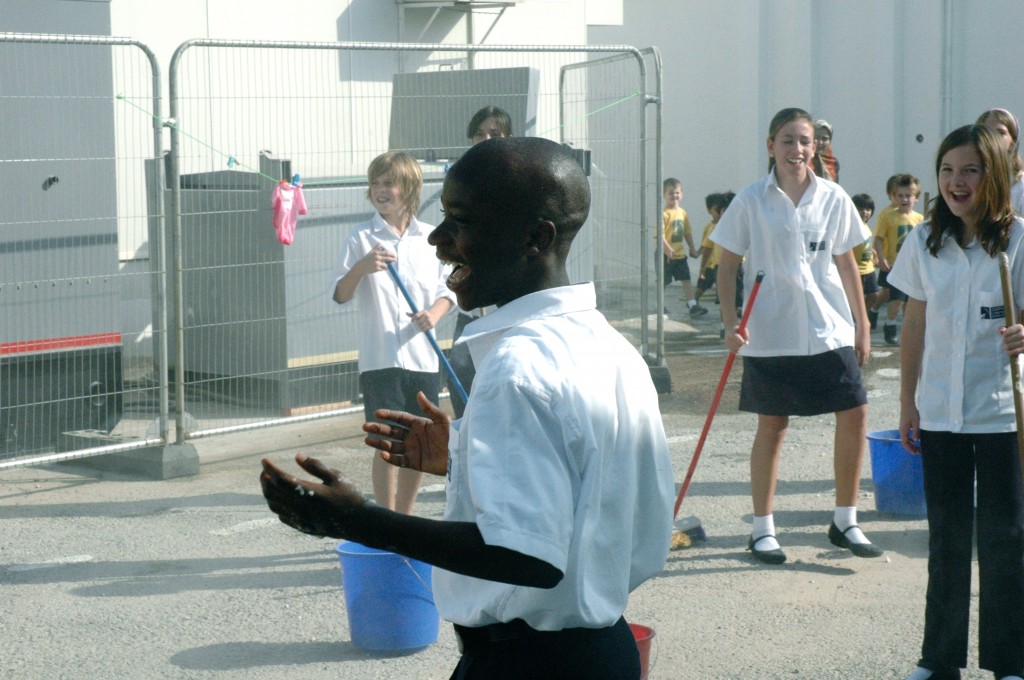If you blog for long enough, I suppose, you will eventually begin to repeat yourself. It can feel like a never-ending cycle of repetition, but who is to say that revisiting themes is necessarily a bad thing? So I apologize if I have written about this topic before, but my good friend Ari over at We Buy Balloons recently emailed me a link to this article with a request to write on the subject with careful consideration, as the affliction mention in the article is the same from which he claims to suffer. Although, I have linked to the article itself, I will quote it at length below, so please stay with us till then end. In short the post claims:
The Internet measures everything. And I am a slave to those measurements. After so many years of pushing much of my life through this screen, I’ve started measuring my experiences and my sense of self-worth using the same metrics as the Internet uses to measure success. I check my stats relentlessly. The sad truth is that I spend more time measuring than I spend doing.
I used to feel an immediate sense of accomplishment when I wrote an article or came up with a joke that I thought was good. Now that feeling is always delayed until I see how the material does. How many views did my article get? Did it get mentioned the requisite number of times on Twitter and Facebook. I need to see the numbers.
And I define myself by those numbers.
I judge the quality of my writing by looking at the traffic to my articles. I assess the humor of my jokes by counting retweets. My status updates, shared links, and photos of my kids need a certain number of Likes to be a success. How am I doing? That depends on how many friends I have, how many followers, how much traffic.
What David Pell describes in his post, what bothers my friend Ari, and those of us involved in this game called social media is the feeling that our thoughts, our art, our creations, our words, and in turn ourselves are only as valuable as the amount of attention they receive from the network of “friends” we have been able to cull from the web.
Before I try to offer up answers or justifications of why this need for affirmation isn’t as big of a problem as many think, let me first admit that I check my stats. I am pretty stoked to be nearing 3,000 followers on Twitter. I google myself often and enjoy hearing my voice echoed back to me via the web. The question I suppose we are left asking is, is that a problem? Is wanting/needing affirmation a bad thing? Is it vain or needy to place your self-worth in the hands of others? Before we get to that answer, I want to make a claim that this discussion has little to do with the Internet. (*The need for acceptance and identity creation has implications for our students. I will try to touch on this idea at the end of this post.) Sure the Internet has made it easy to see how much attention each pixel of our collective self receives via Re-Tweets, views, Likes and other affirmative statistics, but I claiming that the need to be heard and accepted has always been a part of our human psychology; the Internet has only exacerbated our ability to monitor it.
I think the need to be heard and told we are valued is not only at the core of human psychology, but intricately connected to the very purpose of art. Yes, I understand that much of art is personal and cathartic. Why the artist creates is a question that we will never answer, but we can all agree that while some artists create art for the sake self-healing, many also create art to connect to others. Art is the ultimate act of sharing and openness. Audience is an inherent part of art. It has to be. The dance between creator and observer is what makes art so powerful. Let’s face it most people who create, write, paint, perform are needy. We have a void in our souls that can only be filled when others connect to our creations. We feel alive when our art helps others see who we are.

by Ari Zeiger
I have had this need to share and connect with people for as long as I can remember. Does this make me vain or needy? Lacking in self-confidence? Perhaps. But that is the nature to which I have grown fond. The spaces between a robust self-esteem and crippling anxiety is tenuous at best. The difference between the vain rock star and the nervous introvert can be nothing more than a pair of sunglasses and a bottle of whiskey. What I am trying to say is that, while the Internet magnifies our anxieties about whether or not we matter, most artist have always needed to be told they are relevant. Before the Internet did not authors worry about book sales, artists by number of guests at openings and paintings sold? While stats, numbers, sales, and reviews have always been a part of sharing, statistics have never slowed art down. I am sure the first caveman looked for a round of grunts and nods after he first sketched a picture of the hunt on the cold stonewall.

When I was younger, in my twenties, I would scribble poetry, stories, and other random observations into journals. These thoughts were very similar to my current blog posts, Tweets, and other ideas I share online. Back then I would scatter these journals on coffee table tops and would love when people would flip though them at parties. I would watch them wrinkle their faces in confusion or smile in understanding. I could feel them entering my consciousness through a shared understanding of not only who I was, but who they were. I was just not smart enough to leave a little comment box at the bottom of my journal pages, because I wanted more than anything to hear what they thought.
It is true that the web can enhance our neurosis and self-doubt. It can cripple the act of creation if we allow it to magnify our fears and misgivings. It can force us to place our self-worth in the hands of a fluctuating audience, and yes this can have disastrous effects, but this is not the fault of the web. This neurosis is rooted in our collective human psychology of needing love and acceptance. There are people much smarter than me with more letters after their names, who I am sure can write much more intellectually than me on the subject, but that has never stopped me from offering my opinion.
Each person must decide how their self-worth is derived. Each one of us has to decide what we are worth despite the Internet not because of it. Some days we feel like we can carry the world, while others we need to be told we are special. Understanding this dance and going with the flow is the most important thing an artist can learn to do. This was true before the web and it is even truer now.
It is nice to have a post re-tweeted and shared and “liked” and commented on. It makes us feel like our ideas are important and that others “get” us. It is great to make a film and get a couple thousands hits on Youtube. It feels warm in the heart to watch people connect to you words. It feels great to recieve emails from people who say they get what you are doing. Saying they respect you and your work. It is nice to go to conference and have drunken peers say they admire you. It is great to have fans. It feels good to be loved. How can it not? But the question we must ask ourselves is how much of what we do is for them? How much is for me? And how much is for us?
I could get wrapped up in the numbers, and I admit that I sometimes do, but I am learning that I share and let spill what I cannot hold inside. All I can do is hope that others connect. I have the audacity to write a book about my life and think people will care. That is the biggest cry for attention I can think of and that has nothing to do with the Internet or numbers, but I have found the less I worry about the numbers and focus on creating honest work filled with energy and passion the more the numbers tend to rise; the more comments I receive. Someday this fragile network I have cobbled together could all dry up and I could end up writing a blog no one reads, or scribble back into journals I leave on coffee tables in vacant rooms. A book no one buys. Either way, I know that sometimes I create art to help lighten the load and guide me through the darkness and sometimes I share what I share for you dear reader and I wouldn’t have it any other way.
Show me you understand. Show me you love me. Show me I matter. Leave a comment. Re-Tweet. Like me on Facebook. Let this post get a 1000 hits. Let it go viral and get me a book deal. Let it shine a light on all the world and make me a god! Or just skim it, mark it as read, and chalk up to more gibberish coming to you through your informationally overloaded brain. There will be more tomorrow. I am valuable whether you tell me I am or not. How do I know? Just a promise I made to myself as a child. It is not too late make yourself that promise right now….let’s see what you got!
I will save the my thoughts on how young adults deal with the dance between confidence and anxiety and how the new online social reality is affecting their identity creation for another post, or maybe in the comments. But I will say that right now I am listening to the Beatles and this is a great first step to helping young people understand how to deal with the world wide web:






